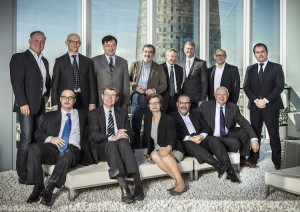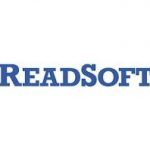From Our Own World: Growing Software Companies
 TBK Consult partners were together for a full week in Barcelona, Spain, earlier this month to review management consulting approaches that help our clients (software companies) achieve (global) growth.
TBK Consult partners were together for a full week in Barcelona, Spain, earlier this month to review management consulting approaches that help our clients (software companies) achieve (global) growth.
The software industry is one of the fastest growing industries in the world. The barriers of entry are steadily decreasing and the opportunities steadily increasing. However, the windows of opportunity are narrow, the competition is fierce and the networking effects and “crossing the chasm” paradigms dramatically favors the market leaders.
The software industry is a winners game.
The mantra: “Grow and lead” or “slow and vanish”.
TBK Consult is specialized in helping software companies grow and our core competency is international growth. Every six months we get together for a full week to review our latest experience from our client projects. In April 2013 we met in Istanbul, Turkey. This time Barcelona, Spain hosted the event.
Local growth versus global growth?
Some potential clients claim that global growth is not on their agenda. They want to focus on their domestic market first, then consider global growth later.
We discussed this phenomenon in the “Entering a Foreign Market” workshop on the first day of our Synergy conference.
It is mainly an issue in the medium-sized markets such as the UK, Germany, France, Italy and Spain. You almost never hear this statement in Denmark, Sweden, Finland or Israel. A recent study in Germany gives us insight to some of the reasons for this attitude. In our posts on the results from this research we concluded:
The number 1 reason a software company does not achieve global growth is lack of global ambitions.
 Software businesses are the easiest to globalize. Unless your software is strictly tied to a national market (software developed for the government/the public sector and software that depends heavily on local legislation and national idiosyncrasies may be difficult to take to the global markets), then launching it on a new international market requires little investment compared to all other industries. Software companies don’t need to build factories and establish logistic infrastructures like most other industries. The capital investment required for globalizing a software product is negligible.
Software businesses are the easiest to globalize. Unless your software is strictly tied to a national market (software developed for the government/the public sector and software that depends heavily on local legislation and national idiosyncrasies may be difficult to take to the global markets), then launching it on a new international market requires little investment compared to all other industries. Software companies don’t need to build factories and establish logistic infrastructures like most other industries. The capital investment required for globalizing a software product is negligible.
There are obviously numerous practical issues to deal with when moving into a new market. However, “ambition” is the fundamental source of energy providing the stamina, persistence, endurance, creativity and patience required to overcome the obstacles and achieve global success.
Without global ambitions global expansion will not take place. It is as simple as that.
While we at TBK Consult can continue to develop more effective ways for our clients to break into new markets, we can do nothing to stimulate their ambitions. Starting local and building muscle for your global growth later is certainly a sensible approach. However, you must THINK global from day one. There are so many decisions in the early days that have an impact on how easily you can take the first step into foreign markets later. Preparing for global growth at the start will increase the probability of success tremendously. That is why, generally speaking, software companies from smaller countries are so much more successful on a global scale than companies from the medium sized markets.
Management Consulting Essentials
On the second day of our Conference we reviewed how we manage our own value chain. As any other company we also need to improve the ways we identify, win, keep and make happy clients – clients who are thrilled with the value we provide and pay equitable fees in return.

The TBK Consult team in Barcelona. From the left (at the back) Mathias Wassén, Luc Vanbecelaere, Erdogan Lak, Gianmaria Odello, Carl Savage, Kai Lemke, Steen Helmer and Christophe Alves. Sitting from the left Wagner Moll, Hans Peter Bech, Emma Crabtree, Manuel Cunha and Leon Rubinstein.
Over the years we have come to realize that many of our potential clients are just not result oriented. Many potential clients are input focused. They want strategy workshops, market assessments, partner recruitment, channel programs, etc. It is always our job to ask: “Why do you want that? What do expect to achieve? What are the objectives? How do you measure the value of an activity if it not related to a business objective? How do you verify if the activity was successful?”
You could ask why we care, but if you have been in business for many years, then you have seen enough “interesting activities.” We are all senior business folks and we want to see results. Getting paid for facilitating “interesting activities” is just not attractive.
We concluded that a consulting project must yield a value, which is at least 10 times higher than the fee we ask. This approach will ensure that we only allocate our time to mission critical projects.
A day in the life of an independent management consultant
We are a loosely coupled network of independent management consultants. To the outside world we may seem like a traditional management consulting company, but we are not. No one at TBK  Consult receives a monthly salary. We all live from the invoices we submit to our clients. As we are a group of senior executives this is exactly the way we want it.
Consult receives a monthly salary. We all live from the invoices we submit to our clients. As we are a group of senior executives this is exactly the way we want it.
We do not have offices where we meet at 08:30 and stay until 16:30. We are mostly on the road working for our clients, working out of hotels, cafés or from our home offices. Technology has enabled this way of working and it is extremely effective.
Twice a year we get together for a full week. We “sharpen the saw” as Stephen Covey calls it in his book “The Seven Habits of Highly Effective People.”
We spend a fair amount of our time together sharing case stories. We review how we identified an opportunity, how we qualified, how we got the engagement and how we delivered the value. These are a great learning exercises. We work alone or in small teams on client projects during the year. Getting together sharing our real life experiences is so rewarding both for those of our colleagues who present the cases and for the rest of us who chip in with questions and comments.
How do independent management consultants “sharpen the saw”? How do they develop professionally and personally? It must be very hard if never team up with your own kin.
Top performer – again and again and again

Hans Peter Bech (left), group CEO of TBK Consult presents the Top Performer award to Steen Helmer, Executive Partner at TBK Consult Denmark.
The very first thing we do at the TBK Consult Synergy Conference is to appoint the Conference President. This position is awarded to the TBK Consultant who has made the biggest contribution to the group since the previous Synergy Conference.
The terms are fairly simple: Who has paid the most royalty?
The TBK Consult business model is very unusual and only requires very small contributions from the TBK Consult partners. Affiliate Partners pay 12% of their revenue, Associate Partners pay 7% and Executive Partners pay just 5%. Despite only paying 5% Steen Helmer from TBK Consult in Denmark was by far the most successful and most contributing partner in the TBK Consult network.
Steen Helmer also received the Synergy Conference President award in Garmisch-Partenkirchen, Germany in November 2012 and in Istanbul, Turkey in April 2013.
External Inspiration
We always close the conference with a series of external speakers. This time we had three external speakers on the agenda.
Xavier Castillo, Director of Electronics and Industrial Policy at AMETIC in Barcelona talked about the challenges and opportunities facing the Spanish software industry. Coincidentally it turned out that the author of this post and Xavier Castillo were old time colleagues. We were both country managers for Data General in the 1990’s and met on the Island of Maui with our wives in March 1990 for Data General’s so-called Million Dollar Club. Small world.
Albert Martinez, International Promotion Senior Consultant at ACCIÓ (Government of Catalonia) talked about the opportunities for investing in the region.
Santiago Oller, Channel Director for Microsoft Dynamics with Microsoft in Spain talked about the challenges and opportunities with growing the Dynamics AX channel in Spain. Dynamics AX partners form all over the world who cast their eyes on Spain can expect a warm welcome. There are plenty of opportunities in Spain for solutions on Dynamics AX.
Next Synergy
The last thing we do before closing the conference and going for lunch is disclose the venue of the next Synergy.
Synergy 2014-1 from Hans Peter Bech on Vimeo.








